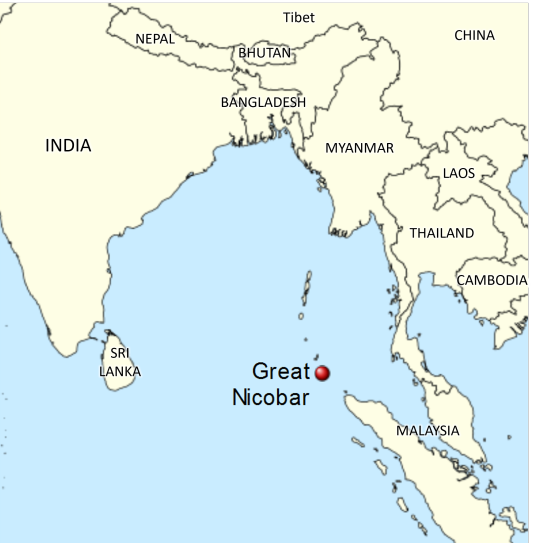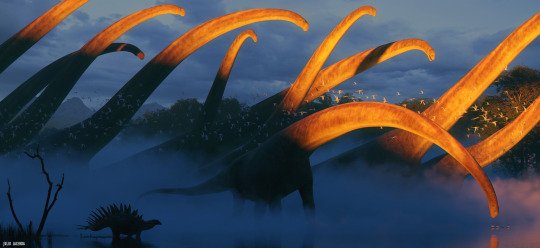#Asia in Asia
Explore tagged Tumblr posts
Text

Look who’s talking this time!
#carl palmer#looking quite handsome in that cap!#greg lake#his award winning smile#asia band#Asia in Asia#elp#emerson lake and palmer#emerson lake & palmer#emerson lake palmer#a greg a day (or two or more)
18 notes
·
View notes
Text
Do non Brazilians/Filipinos know about Brazilippines…. Brazilians and Filipinos randomly decided that we were two sides of the same coin and have now become besties






#only the most latino country in asia and the most asian country in latin america#brazil#philippines#brazilippines#olympics#paris 2024
63K notes
·
View notes
Text
white americans when you tell them that the idea of climate change as an impending disaster is a reductive first world perspective because it’s a tangible reality for many in the global south already:
#climate change#im TIRED#and i’m saying this as someone who also lives in the US.#im glad that none of you have to worry about your family and friends in other countries dying because of the heat#but this idea that “oh we have to stop it before we reach the extreme” is SO STUPID#because it’s already reached the extreme in some places!!#people are dying in south asia. people are dying in southeast asia. people are dying in africa. people are dying in central america.#people are dying in south america. people are dying in island nations.#what will it take you to care about these people#or will you not care until it’s people who look like you who are dying.
47K notes
·
View notes
Text

Red Fox (Vulpes vulpes)
Observed by irkuem, CC BY-NC
26K notes
·
View notes
Text

#this is so beautiful#i love the chinese languages and characters so much#from my understanding this would not be in a modern language that i could possibly read with standard chinese knowledge though#makes me wanna study chinese history and language history so bad ngl#language#art inspo#asia#games#peklo ref#fav
16K notes
·
View notes
Text









14K notes
·
View notes
Text

Elephant Trunk Snake aka Javan File Snake (Acrochordus javanicus), family Acrochordidae, Malaysia
photograph by Bryce Trevett
#elephant trunk snake#file snake#acrochordus#acrochordidae#snake#reptile#herpetology#animals#nature#asia
24K notes
·
View notes
Text


(by Khaled Ali)| Nepal
8K notes
·
View notes
Text
Genocide experts warn that India is about to genocide the Shompen people
Who are the Shompen?
The Shompen are an indigenous culture that lives in the Great Nicobar Island, which is nowadays owned by India. The Shompen and their ancestors are believed to have been living in this island for around 10,000 years. Like other tribes in the nearby islands, the Shompen are isolated from the rest of the world, as they chose to be left alone, with the exception of a few members who occasionally take part in exchanges with foreigners and go on quarantine before returning to their tribe. There are between 100 and 400 Shompen people, who are hunter-gatherers and nomadic agricultors and rely on their island's rainforest for survival.

Why is there risk of genocide?
India has announced a huge construction mega-project that will completely change the Great Nicobar Island to turn it into "the Hong Kong of India".
Nowadays, the island has 8,500 inhabitants, and over 95% of its surface is made up of national parks, protected forests and tribal reserve areas. Much of the island is covered by the Great Nicobar Biosphere Reserve, described by UNESCO as covering “unique and threatened tropical evergreen forest ecosystems. It is home to very rich ecosystems, including 650 species of angiosperms, ferns, gymnosperms, and bryophytes, among others. In terms of fauna, there are over 1800 species, some of which are endemic to this area. It has one of the best-preserved tropical rain forests in the world.”
The Indian project aims to destroy this natural environment to create an international shipping terminal with the capacity to handle 14.2 million TEUs (unit of cargo capacity), an international airport that will handle a peak hour traffic of 4,000 passengers and that will be used as a joint civilian-military airport under the control of the Indian Navy, a gas and solar power plant, a military base, an industrial park, and townships aimed at bringing in tourism, including commercial, industrial and residential zones as well as other tourism-related activities.
This project means the destruction of the island's pristine rainforests, as it involves cutting down over 852,000 trees and endangers the local fauna such as leatherback turtles, saltwater crocodiles, Nicobar crab-eating macaque and migratory birds. The erosion resulting from deforestation will be huge in this highly-seismic area. Experts also warn about the effects that this project will have on local flora and fauna as a result of pollution from the terminal project, coastal surface runoff, ballasts from ships, physical collisions with ships, coastal construction, oil spills, etc.
The indigenous people are not only affected because their environment and food source will be destroyed. On top of this, the demographic change will be a catastrophe for them. After the creation of this project, the Great Nicobar Island -which now has 8,500 inhabitants- will receive a population of 650,000 settlers. Remember that the Shompen and Nicobarese people who live on this island are isolated, which means they do not have an immune system that can resist outsider illnesses. Academics believe they could die of disease if they come in contact with outsiders (think of the arrival of Europeans to the Americas after Christopher Columbus and the way that common European illnesses were lethal for indigenous Americans with no immunization against them).
And on top of all of this, the project might destroy the environment and the indigenous people just to turn out to be useless and sooner or later be abandoned. The naturalist Uday Mondal explains that “after all the destruction, the financial viability of the project remains questionable as all the construction material will have to be shipped to this remote island and it will have to compete with already well-established ports.” However, this project is important to India because they want to use the island as a military and commercial post to stop China's expansion in the region, since the Nicobar islands are located on one of the world's busiest sea routes.
Last year, 70 former government officials and ambassadors wrote to the Indian president saying the project would “virtually destroy the unique ecology of this island and the habitat of vulnerable tribal groups”. India's response has been to say that the indigenous tribes will be relocated "if needed", but that doesn't solve the problem. As a spokesperson for human rights group Survival International said: “The Shompen are nomadic and have clearly defined territories. Four of their semi-permanent settlements are set to be directly devastated by the project, along with their southern hunting and foraging territories. The Shompen will undoubtedly try to move away from the area destroyed, but there will be little space for them to go. To avoid a genocide, this deadly mega-project must be scrapped.”
On 7 February 2024, 39 scholars from 13 countries published an open letter to the Indian president warning that “If the project goes ahead, even in a limited form, we believe it will be a death sentence for the Shompen, tantamount to the international crime of genocide.”
How to help
The NGO Survival International has launched this campaign:
From this site, you just need to add your name and email and you will send an email to India's Tribal Affairs Minister and to the companies currently vying to build the first stage of the project.
Share it with your friends and acquittances and on social media.
Sources:
India’s plan for untouched Nicobar isles will be ‘death sentence’ for isolated tribe, 7 Feb 2024. The Guardian.
‘It will destroy them’: Indian mega-development could cause ‘genocide’ and ‘ecocide’, says charity, 8 Feb 2024. Geographical.
Genocide experts call on India's government to scrap the Great Nicobar mega-project, Feb 2024. Survival International.
The container terminal that could sink the Great Nicobar Island, 20 July 2022. Mongabay.
[Maps] Environmental path cleared for Great Nicobar mega project, 10 Oct 2022. Mongabay.
#shompen#genocide#stop genocide#india#indigenous#indigenous peoples#indigenous rights#human rights#anthropology#stateless nations#end occupation#andaman and nicobar islands#nicobar islands#great nicobar#💬#asia#geopolitics#ecocide#sustainability
23K notes
·
View notes
Text

Asia boy
#greg lake#the shoulder pads#love the ‘80s#asia band#Asia in asia#geoff downes#steve howe#carl palmer#elp#emerson lake and palmer#emerson lake & palmer#emerson lake palmer#a greg a day (or two or more)
12 notes
·
View notes
Text

lol at America being so messed up the Chinese don’t even have to make up propaganda.
#Red note#rednote#healthcare#tiktok#politics#democrats#republicans#woc#Poc#asia#citalism#anti capitalism
6K notes
·
View notes
Text
Mio Kudo / 工藤美桜

5K notes
·
View notes
Text

Takachiko Gorge | lifewithelliott
4K notes
·
View notes
Text

As above, so below
Mamenchisaurus, Jiangjunosaurus, Sericipterus.
Patreon • Ko-fi • Facebook • Twitter • Prints & Merch
9K notes
·
View notes
